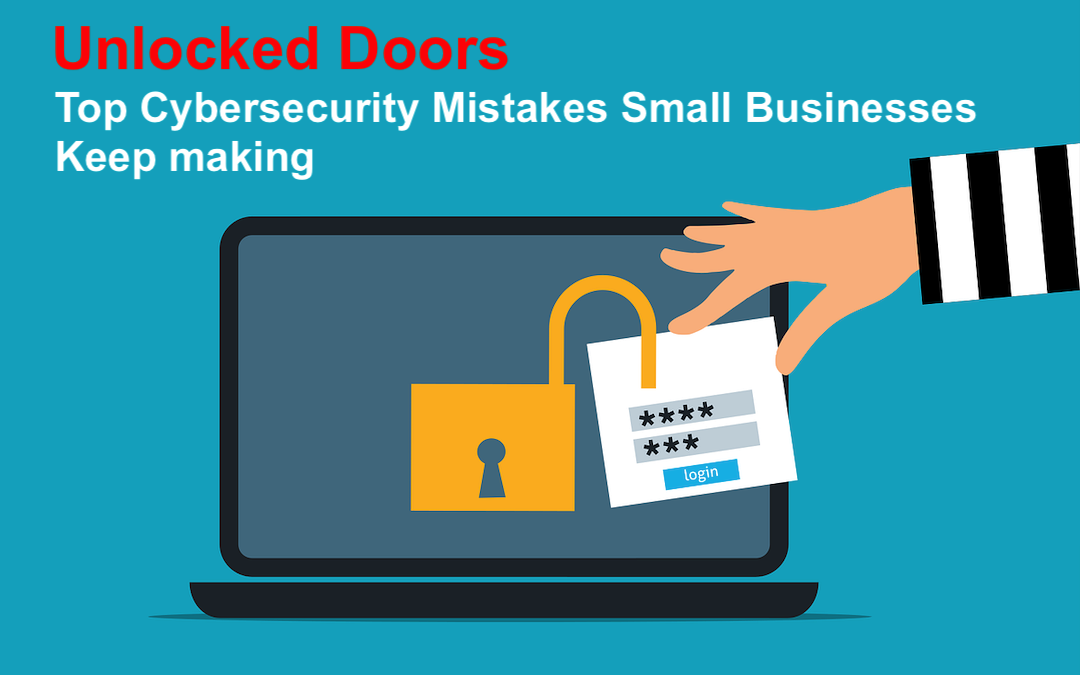
In today's digital age, your small business's cybersecurity posture can mean the difference between thriving and being derailed by data breaches or attacks. As you steer your company through the challenges of the online world, there are critical mistakes you should be wary of. Addressing these errors proactively can shield your business from potential threats and fortify your operations against cyber adversaries.
Strengthen the Human Firewall
One of the most prevalent oversights in small business cybersecurity is neglecting employee training. Your employees are often the first line of defense against cyber threats. Regular training sessions can equip your team with the necessary knowledge to identify and mitigate risks like phishing and social engineering tactics. These sessions should not only be conducted upon hiring but also regularly updated to keep pace with evolving threats. An informed team that can recognize suspicious emails or offers is a fundamental barrier against intrusions.
Forge Stronger Password Protocols
Weak passwords are akin to leaving your business's front door unlocked. Encouraging the adoption of robust, unique passwords is your initial step towards securing your digital assets. To elevate security further, implement multi-factor authentication (MFA) across your systems. MFA adds an additional layer of security, making it significantly harder for attackers to gain unauthorized access even if they manage to crack a password. This practice should become a standard security measure in your cybersecurity strategy.
Continuously Educate Yourself
Pursuing a bachelor of computer science is a strategic move that can significantly deepen your understanding of IT, programming, and computer science theory, given the complexity and technical nature of current cyber threats. This program equips you with advanced skills to effectively manage your business's cybersecurity needs. An online degree program also provides the flexibility to continue your education while managing the daily demands of running your business.
Update and Upgrade Diligently
Keeping your software up-to-date is as crucial as any physical maintenance you would perform in your business. Outdated software can serve as an easy entry point for cybercriminals. Establish a routine where all operating systems, applications, and software are kept up to date through automatic updates and a managed patch system. This not only helps shield your systems from known vulnerabilities but also ensures you are equipped with the latest features for better performance and security.
Secure Your Data Through Backups
Data is the lifeblood of your business, and losing access to it can be catastrophic. Many small businesses underestimate the importance of robust data backups. Automated and regular backup procedures, combined with offsite storage options, are essential for effective disaster recovery. These measures ensure that in the event of a data breach or physical damage to your data storage hardware, you can restore your critical business information swiftly and minimize downtime.
Establish and Enforce Security Policies
Without comprehensive cybersecurity policies, your business is navigating without a map. Clear guidelines for access control, data handling, and incident response are essential components of a secure business environment. These policies not only help in managing how data is accessed and used but also ensure that there are predetermined procedures in place for responding to security incidents. Regularly reviewing and updating these policies to align with new security practices and business objectives is critical.
Protect Your Mobile Workforce
With the increasing reliance on mobile devices within business operations, mobile device security cannot be ignored. Implementing a mobile device management (MDM) solution helps you enforce strong security settings across all company-owned and employee devices. This system allows you to manage and secure mobile data effectively, configure devices remotely, and even wipe data if a device is lost or stolen, ensuring sensitive information remains protected.
Wrap Up
By addressing these key areas, you can build a cybersecurity framework that not only protects your business from immediate threats but also prepares you for future challenges. Remember, effective cybersecurity is not a one-time effort but a continuous process of improvement and adaptation. By investing in robust cybersecurity measures today, you are not only protecting your business assets but also building a foundation for sustainable growth and trust with your customers.
Share this post
Leave a comment
All comments are moderated. Spammy and bot submitted comments are deleted. Please submit the comments that are helpful to others, and we'll approve your comments. A comment that includes outbound link will only be approved if the content is relevant to the topic, and has some value to our readers.

Comments (0)
No comment